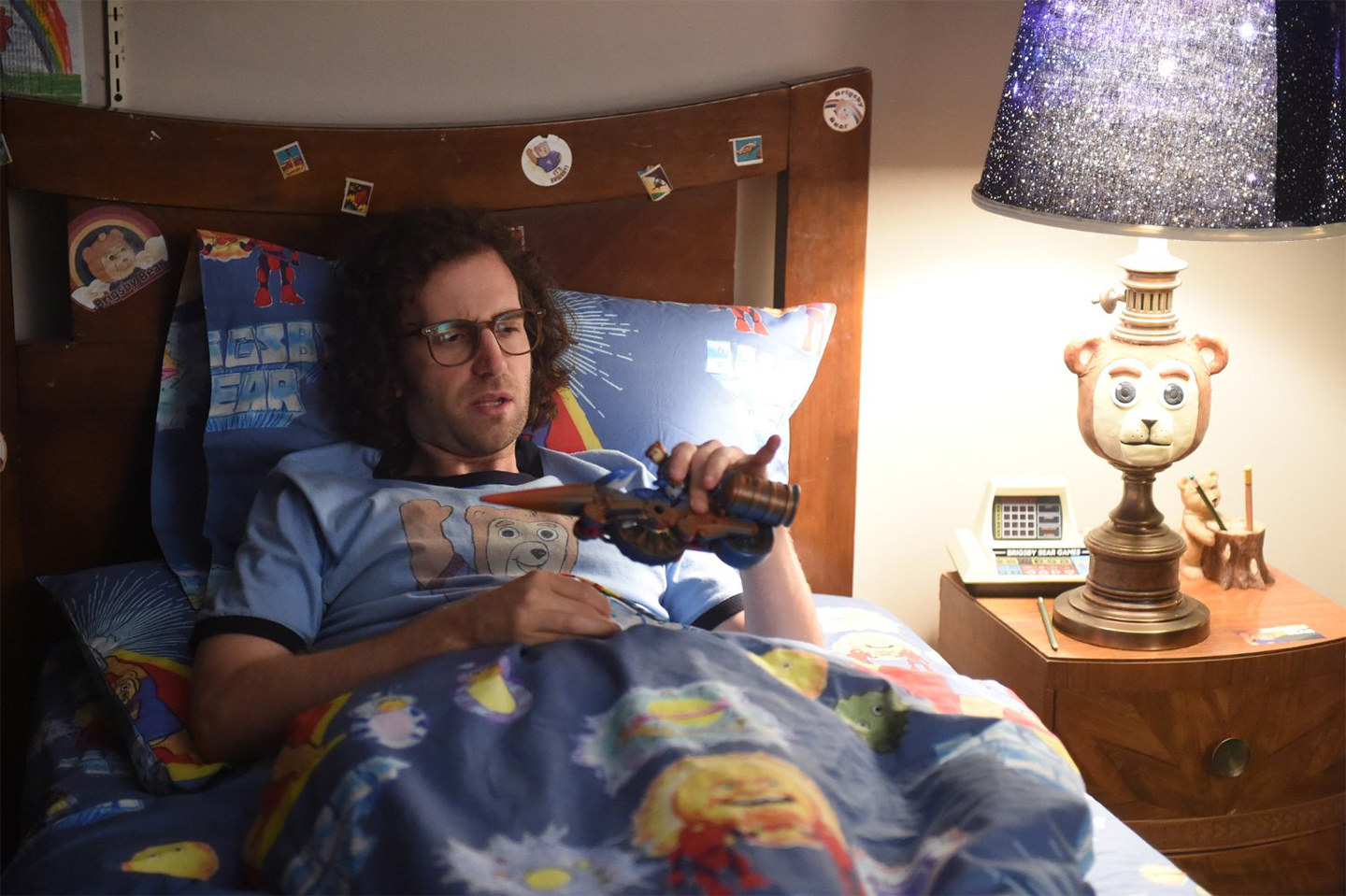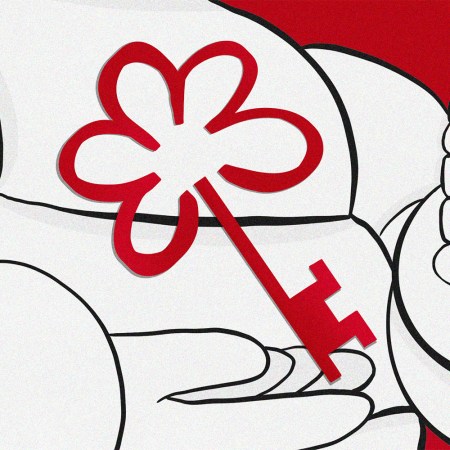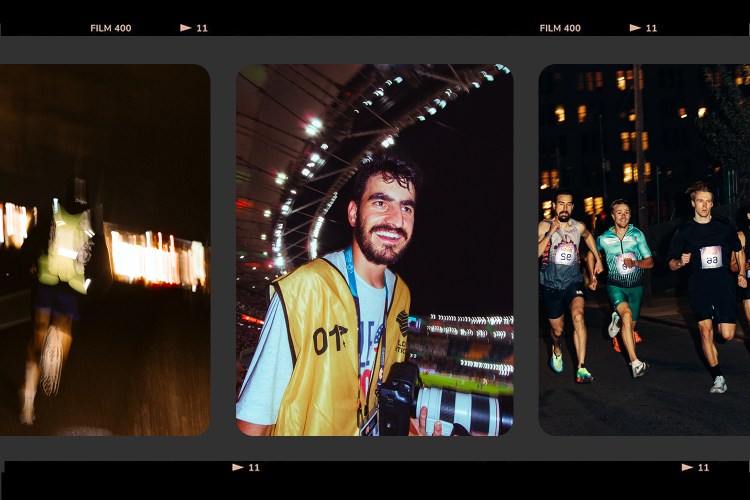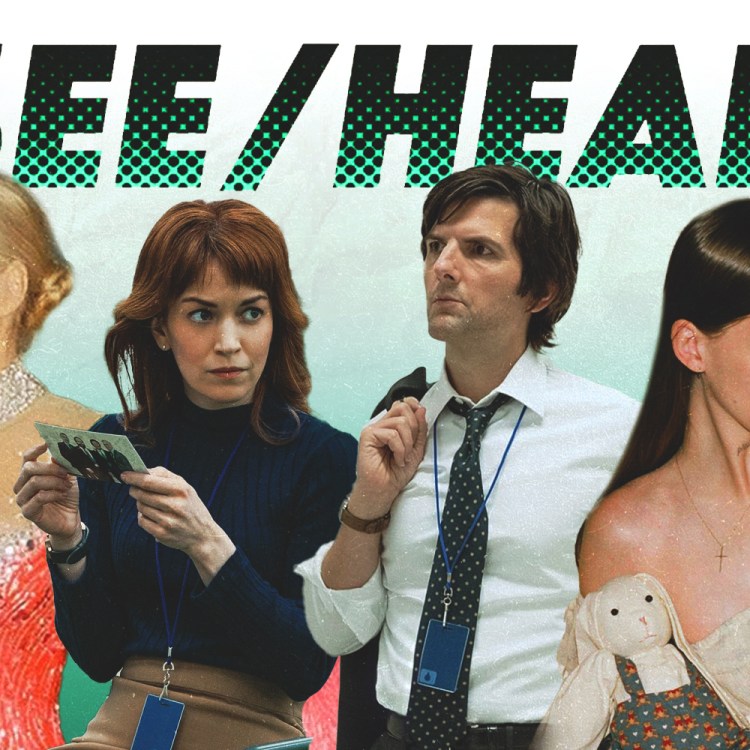In the late ’70s and early ’80s, psychiatrists could be found prescribing a synthesized compound that was informally marketed as “penicillin for the soul.” Used to open up an empathetic dialogue with patients suffering from marital troubles, PTSD and other forms of trauma, the synthetic compound 3,4-methylenedioxymethamphetamine, became better known as MDMA. Or as we now know it today: Ecstasy. In 1985, the DEA banned the drug and reclassified it as a Schedule I narcotic…in the same group as heroin, LSD and cocaine.
I bring this up not because ecstasy features heavily in the plot of Brigsby Bear, the brainchild of Saturday Night Live‘s resident twitchy guy Kyle Mooney (though the drug does make a brief appearance.) It’s the film itself that feels like the effects of powerful MDMA: at its core, it’s about the transcendence of trauma through creativity, camaraderie and sheer madness.

The texture of Brigsby Bear is that of stoned nostalgia: it’s a TV show watched incessantly by its one and only viewer, a 25-year-old manchild named James Pope (Mooney). From the homemade sets, props and the large, Chuck E. Cheese-like head of Brigsby himself, the mise-en-scene alone could have easily overshadowed the narrative thread of the film, a trap fallen into by the two current auteurs of effervescence, Michel Gondry and Wes Anderson. While The Science of Sleep and The Darjeeling Limited both had their moments, it’s undeniable that the diorama-worlds these stories exist in are far more engrossing than its plot or characters. In the case of Gondry, his follow-up movies to Eternal Sunshine of the Spotless Mind were all the more disappointing because of their obvious potential. Who wouldn’t want to see Jack Black and Mos Def throw a party for the end of VHS era in Be Kind, Rewind, or watch the smoldering Gael Garcia Bernal in a raccoon costume sing a surreal cover of The Velvet Underground in the aforementioned Sleep? But Gondry’s eye was stronger than his storytelling abilities, and without the dark, demented brilliance of Charlie Kaufman’s scripts, the French director’s career floated away like a million frothy, rainbow-colored bubbles.
Somehow Mooney—who made the film with his actual childhood friends Kevin Costello and Dave McCary—has managed to outpace Gondry on his first try with something greater, deeper and far more moving than the sum of its hand-crafted parts. Honestly, it would have been enough had the story just been cogent. Instead, it’s absolutely unrivaled.
You could see how, as an elevator pitch, Brigsby Bear could be read as an entirely different kind of film. Pope lives with his parents, April and Ted (Jane Adams and an astonishingly impish Mark Hamill), in an underground bunker. James is allowed exactly one form of entertainment in the form of hundreds of VHS-taped episodes of Brigsby Bear, a Saturday morning show. There’s something wrong in this family, for sure, and when the police arrive on the scene, that “something” goes from quirky dotage to an episode of Law & Order: SVU real quick. James learns that Ted and April aren’t his parents, but rather, kidnappers who stole him from the hospital as a newborn. Raised in a false reality his entire life, James reacts to this new world and “new” (original) family with bouts of equally off-putting sullenness, mania and increasingly violent episodes.
So why is the movie so magical? Because of the titular character, and James’ devotion to it. Despite finding out the hard truth about his sheltered existence in the care of two insane baby-snatchers, James clings even tighter to his idol Brigsby. So when he discovers his “old” father Ted created by the show, James sets out with single-minded determination to make his own movie version of his beloved program. And in a way that is both whimsical and highly realistic, James enlists a gang of Brigsby-groupies—including his little sister and the detective assigned to his case (Greg Kinnear)–to see his vision through.
Brigsby Bear is a testament to both world-creators and their fans, a feat that one has to look no further than Comic-Con to understand is easier said than done. I wish there were a better selection of Brigsby-esque movies to compare this to, but unfortunately, that’s just not reality.
Drew Grant is a Los Angeles-based freelance writer and former arts and entertainment editor of the New York Observer.
This article was featured in the InsideHook newsletter. Sign up now.























